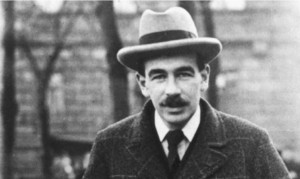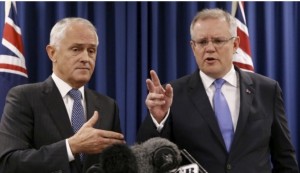Dear reader, the following is an extract from a most excellent piece sent to us from our esteemed poet laurete Mr Ira Maine esq.. Due to the exigencies of recent budget cuts we are not able to give you a complete analysis, other than to say it’s an analysis in itself, and a remarkably good read. We hope you agree with us on this count.
Rod Simms, chairman of the ACCC, is losing faith in privatisation. The ACCC is the Australian Competition and Consumer Commission, a body charged with ensuring that competition in the market place is alive and well…competitive. The IMF (The International Monetary Fund) is (now) of the opinion that neo-liberalism is a bad thing in that it creates such massive inequality that it diminishes productivity, destroys economic growth and impoverishes vast sections of society. For this reason, economists of all stripes have begun to look anew at economic policy.
These are all hopeful signs that the powers-that-be have also begun to look afresh, and critically at the results of neo-liberal economic policies over the last 30 or 40 years. It is undoubtedly true that the results of these policies have been extremely deleterious to society and have contributed enormously to our present economic difficulties. It is time, economists feel, for a fresh start.
All of the above might be wonderful news were it not for a simple, and largely ignored fact: history. Every properly educated, 20th century economist will, I imagine, have studied the history of modern economics and will be well aware of it’s pitfalls. During the Napoleonic Wars, England, being the only western European country not to be invaded by Napoleon, seized the opportunity to supply most of Europe with food and clothing. Massive profits were made until Wellington brought the whole business to a halt by thrashing the French at Waterloo. What followed in England was a gradual decline into recession, food riots and appalling scarcity. Up sprang ‘economists’ on all sides who knew precisely what to do. A form of economic management called ‘laissez faire capitalism’ was instituted which basically meant ‘let the market rule’.
Economic thinking had it that profit taking was paramount, there was no need for governments to interfere, even if the people were starving, as, by a natural process, the market would eventually correct itself. This resulted in mass starvation all over the British Isles. American ships, loaded with grain donated to relieve hunger, were driven off by the British authorities because, they argued, the Yankee product would depress the governmentally guaranteed price of the local grain! This example of laissez faire capitalism became an international scandal when it was discovered that, by 1848, as a result of this infamous policy, at least a million people had died of hunger in Ireland. By the Mid 1850’s, both Germany and the United States were becoming economic powers in their own right and had seriously begun to threaten the British monopoly on trade. Naturally there was belt tightening at home, at least for the working class and even more of it when the laissez faire driven Long Depression of the 1870’s took hold. By 1914, conditions for the urban working classes in Britain were so bad, with so many men underweight and malnourished, that scores were declared absolutely unfit to be soldiers in the Great War.

Keynes. Often forgotten that much of his economic theory was borne through hanging around with artists, writers and great talkers. Pity that example is not followed today.
The moment the Great War was over there was a recession. By 1926 there was a huge Depression. For the next couple of years, insane, unfettered speculation kept flappers dancing until laissez faire, that darling of the economic theorists, created, in a very short time, the Great Depression.
The English economist, John Maynard Keynes, at about this time, developed a new economic theory. Observing the endlessly repeated and disastrous ‘boom and bust’ effect of laissez faire capitalism, of allowing the market to rule itself, Keynes decided that governmental control of the market should play a much greater role in the economic life of the land. When Keynes’ theories were adopted, the wild speculation seen in the 1920’s by banks was brought under strict control and it was determined that governments should, in the future, intervene directly in the marketplace whenever markets threatened to either ‘boom’ or’bust’. Keynes also believed that, in times of economic downturn, governments should spend massively to both provide employment and ease the effects of recession..
Keynes took his ideas to the US where Franklin D, Roosevelt instituted hugely successful work programs to provide assistance to the millions of Depression era unemployed. The above is not, by any stretch, a history of economics, but it does tend to show that allowing the market to rule itself is a formula for economic disaster, as it invariably hammers those least capable of surviving an economic collapse. People, working people, suffered endlessly in the Depression, particularly in Australia and the U.S. Keynes saw this and determined that it should not happen again. This brilliant economist died in 1946 but his changes to the economic life of Britain and elsewhere brought about sustained and spectacular post-war prosperity which lasted for forty years.
We await tomorrow’s installment with some anticipation, and hope that out P.M for Innovation may yet make a decision, demonstrate leadership, or “do something”!

